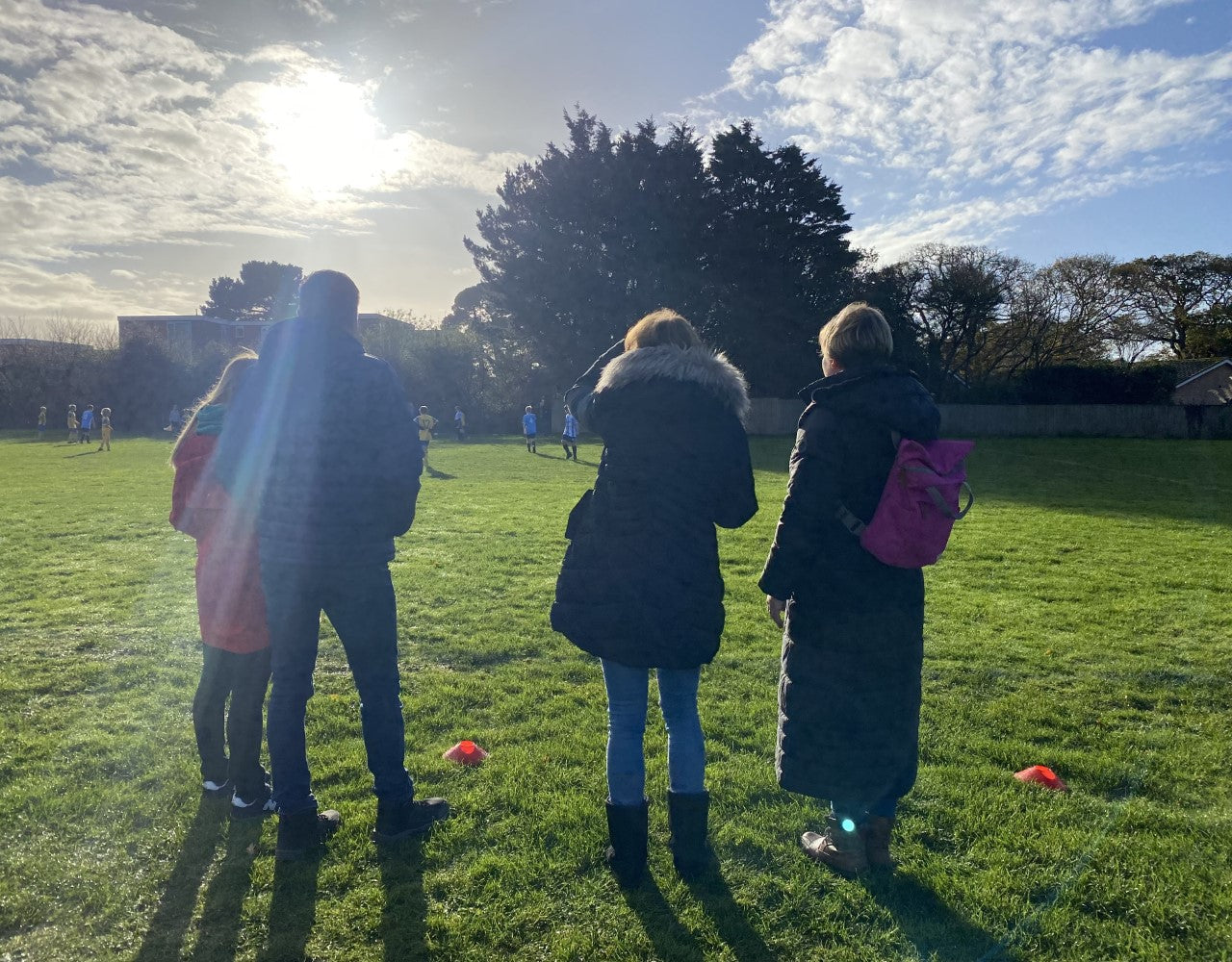Let’s talk about parental guilt. Many of us have seemingly never-ending demands on our time but still feel overwhelming guilt if we miss a child’s sports’ fixture. The expectation to work like you don’t have kids and have kids like you don’t work is creating a culture of perpetual falling short and feelings of guilt and in some cases resentment. We may resent other parents who seemingly have less demands on their time or worse still, harbour resentment towards our kids for needing more of our time.
In reality kids love to show off to their parents and know they have their support. However not making every match, every training session or tournament is actually more than ok too. Learning to set expectations with your children beforehand and actively being present at the times that count (not scrolling work emails on your phone when your daughter scores a worldy from the corner - doh!) will really help.
We are parents, not superheroes. We cannot be in multiple places at the same time. We cannot do all things or be all things.
In a wonderfully written article by Christine Carter she gives a fantastically accurate rendition of ‘My days as a Sports Parent’ and she concludes that although it’s exhausting, it’s also “exciting and fun” and “worth all the sacrifices we make to watch our kids experience the incredible rewards and invaluable life lessons learned from it all”.
I don’t like missing games and school activities. I want to be there for everything, but it just isn’t possible. And feeling guilty about it does no one any good.
The renowned psychotherapist Esther Perel shared on the Motherly podcast that when her kids were little, she didn’t go to Saturday morning games. Instead, she spent Saturday mornings doing something for herself.
“I didn’t feel guilty about it,” Perel said. “I felt this doesn’t work well for me. If I come back after two hours, and you had a great game and I had a great whatever I was doing, and we chat about it together and then we spend the afternoon, we had a good time.”
Rather than going to every game simply because that’s what others were doing, she was more intentional about the way she spent her time. For instance, she took each child on an annual trip alone, which became “foundational in creating a deep connection.”
As parents, we have a million demands on our time and attention. We have to prioritise and make tough choices. So my advice to other parents who are in the thick of it, running themselves ragged trying to make it to all the things, is this: understand what is the real reason you are going to this match?
Does your child really want or even need you there? Is it because you don’t want other parents to think badly of you for missing it? Is it because you genuinely enjoy watching them play? Or has it become an unnecessary habit that is impacting your time spent elsewhere?
What matters is whether our children are doing something they enjoy, whether they feel like they are part of a team. And those things can happen whether we are physically present or not.
Over the past decade or so, Laceeze owner Emma has spent a lot of time watching her active sons play a variety of sports. There is something magical about watching your kids do something they love but there is no guilt for not being at every fixture.
We can cheer our kids on from afar. We can remind them that we are rooting for them even though we can’t be at the game. We can ask them to tell us about the game afterwards. Our partner, another parent, or a grandparent can be their cheering section in our absence. We can ask a family member or friend to take a few photos or a video. And we can focus less on what we're missing or what our child is missing, and focus more on what we're gaining.
Our children will learn an important life lesson - that even though they are the centre of our world, they aren’t the centre of THE world. They will learn to rely on other adults and peers for direction and protection. They will learn that parents have needs of their own. They will learn to play for the love of the game, not for the approval of someone else. And we gain some much-needed time and a little freedom from the unnecessary guilt we so often feel.
If you can’t be at every one of your kid's sport games or any other key events (of which there will be many) —and no one can—don’t think of it as a negative. It’s more important for your child to know they are loved and wherever you may be, you are rooting for them.


0 comments